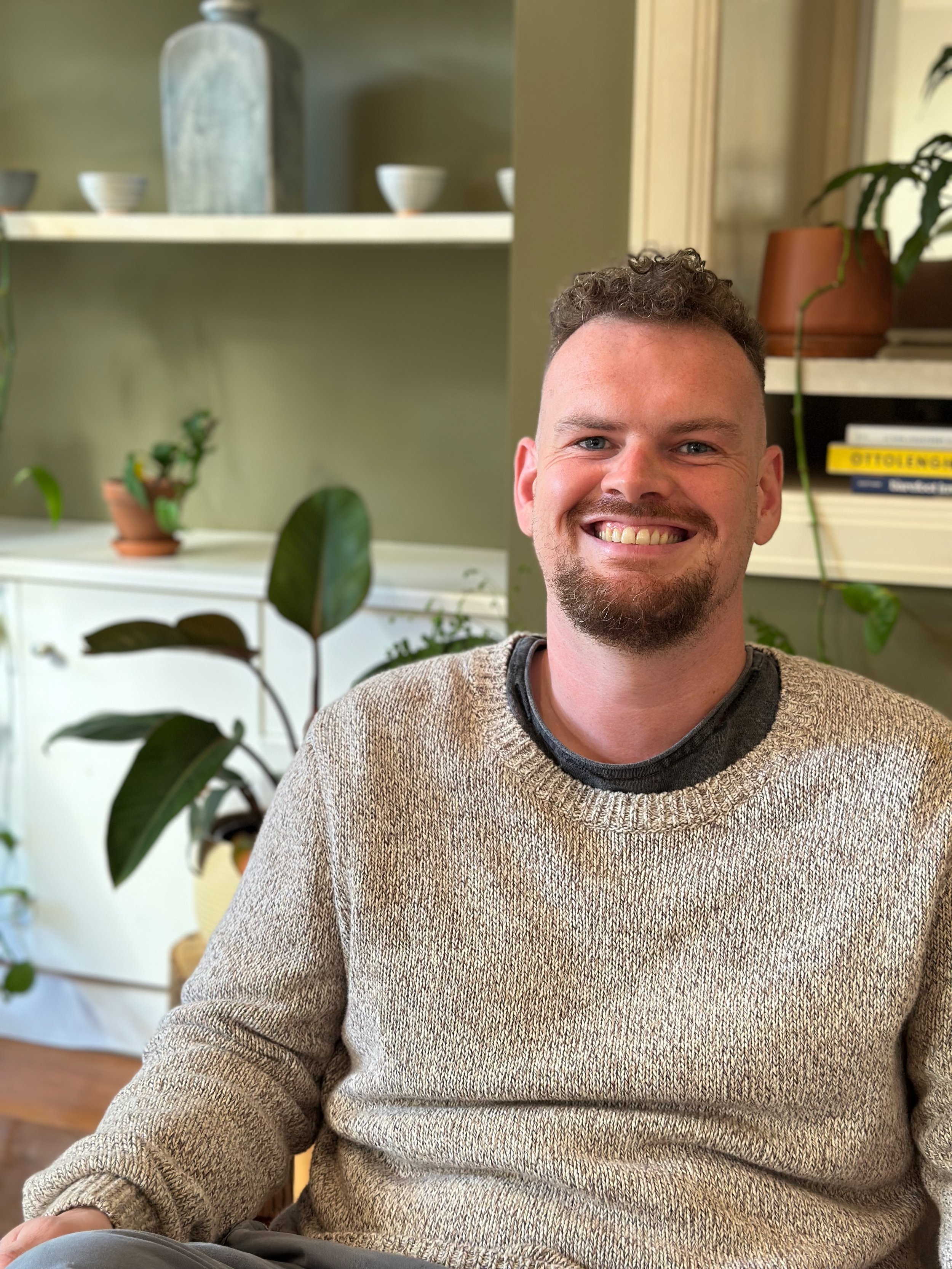About Sam
Sam (he/him) is a relational Gestalt therapist working with adults and older teens. His approach is grounded and warm, offering a steady presence for people who feel emotionally disconnected, stuck, or unsure how to make sense of their experience. With a focus on self-compassion and awareness, Sam supports clients to explore what’s been hard to hold alone and build a more authentic connection with themselves and others.
Sam’s work is shaped by both clinical training and lived experience. He brings a deep respect for the complexity of being human, particularly for those navigating shame, early relational trauma, emotional disconnection, and questions of meaning and belonging. Having worked through his own struggles with depression, disconnection, and a long search for clarity, Sam understands the courage it takes to turn toward what hurts.
His work draws on Gestalt therapy, Internal Family Systems, PACT couples therapy, somatic approaches, and integration of psychedelic and ritual-based experiences. Central to his approach is the development of a more compassionate inner relationship, influenced by Kristin Neff’s work on self-compassion and his own experience of learning to soften long-held patterns of self-criticism and judgement.
Sam is LGBTQIA+ affirming, sex positive, neurodivergent affirming, and culturally inclusive.
What is Gestalt Psychotherapy?
Gestalt therapy is based on the idea that we’re best understood in the context of our present experience—what we’re thinking, feeling, sensing, and doing in the here and now. It invites clients to bring awareness to their moment-to-moment experience, with the aim of deepening self-understanding and supporting meaningful change.
The word gestalt comes from German, meaning “shape” or “form.” In therapy, it reflects how we make sense of our lives as a whole—how our thoughts, feelings, behaviours, and past experiences come together to shape how we relate to ourselves and others. Gestalt therapy supports awareness of these patterns, especially the ones that may be limiting growth or keeping us stuck.
This approach is experiential, often using creative techniques like role-play, guided imagery, empty chair work, dream exploration, and body-based awareness to help bring insight and integration. These practices help clients explore their inner world more fully and develop new ways of responding.
A key idea in Gestalt therapy is “unfinished business”—unresolved emotions, conflicts, or experiences from the past that still affect us today. Therapy creates space to explore and process these experiences so they no longer shape our present in unconscious ways.
Gestalt therapy also places a strong emphasis on personal responsibility—not in a harsh or blaming way, but in the sense of reclaiming our capacity to make choices and respond to life in ways that are more aligned with who we truly are. The therapist acts as a collaborator in this process, offering support, challenge, and presence.
Gestalt therapy can be helpful for a wide range of issues, including anxiety, depression, trauma, relationship difficulties, self-esteem concerns, and a general desire for personal growth. It’s often well suited to people interested in longer-term, depth-oriented therapy.
At its core, Gestalt psychotherapy offers a holistic and relational way of working—supporting greater awareness, authenticity, and integration across mind, body, and emotion.
